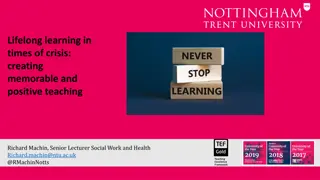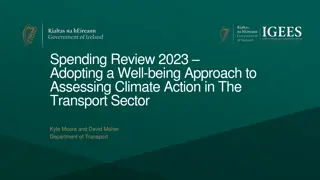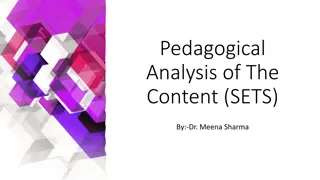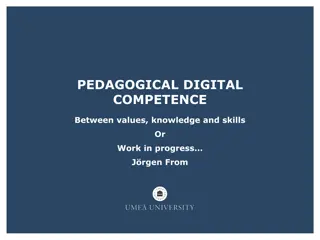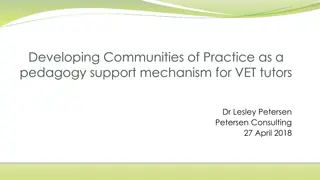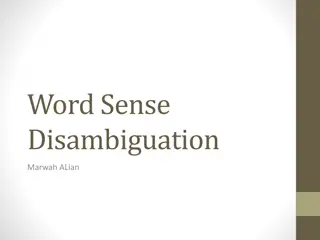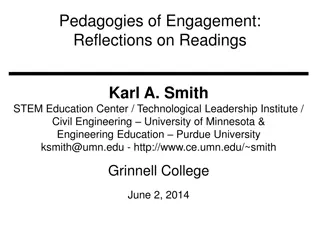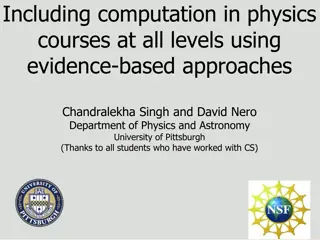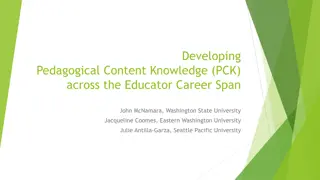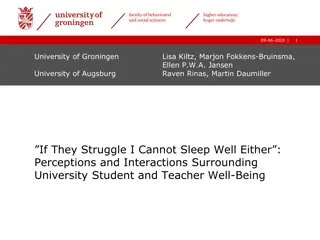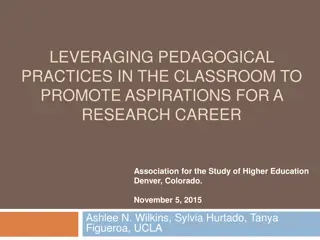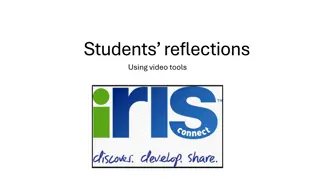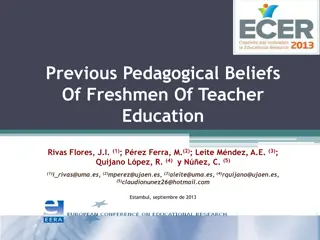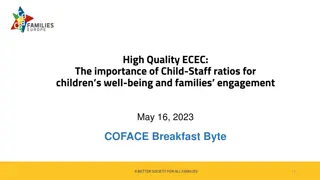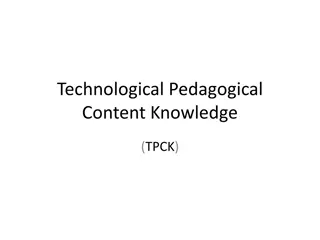Engaging Pedagogical Approaches for Student Well-Being
Navigating expertise, embracing the unknown, and supporting student resilience are key themes in the innovative pedagogical practices highlighted. The exploration dives into promoting student purpose, dismantling assumptions about expertise, and cultivating living classrooms. The emphasis on creating engaging spaces for learning without a fixed blueprint encourages flexibility and adaptation. Strategies like quoting and circle discussions enrich student participation and engagement in the learning process.
Uploaded on Oct 05, 2024 | 0 Views
Download Presentation

Please find below an Image/Link to download the presentation.
The content on the website is provided AS IS for your information and personal use only. It may not be sold, licensed, or shared on other websites without obtaining consent from the author. Download presentation by click this link. If you encounter any issues during the download, it is possible that the publisher has removed the file from their server.
E N D
Presentation Transcript
A Pedagogy of Unknowing
When you hear this title, what are some ideas that come to mind? A Pedagogy of Unknowing Please take a moment to write one or two ideas on your notepad. We will share these ideas in the breakout room within the context of the material I present.
Dismantling the Educational Complex: Supporting Student Well-Being
What would you build with a course release and the resources and the freedom to experiment? I used my administrative course releases to build an experimental program to promote student resilience, wellness, and purpose. The program evolved into a regular 3-credit class: Quests and Callings.
Dismantling the Assumptions We Have About Expertise: Supporting Student Belonging
Sustaining Living Classrooms Where Knowledge Can Grow: Institutional Support
Everyday Containers to Hold Space for Unknowing Even though I share strategies, these works do not offer blueprints for ways to make the classroom an exciting place for learning. To do so would undermine the insistence that engaged pedagogy recognize each classroom as different, that strategies must constantly be changed, invented, reconceptualizedto address each new teaching experience. bell hooks, Teaching to Transgress
Ask students to copy a quote from the assigned homework or reading that resonates with them or challenges them. Circles Every Student Speaks Every Day Any radical pedagogy must insist that everyone s presence is acknowledged. Students form circles of 4-6 members and take turns sharing. bell hooks, Teaching to Transgress: Education as the Practice of Freedom Representatives from each circle amplify the voices in their groups to launch class discussion.
When students share ideas aloud, capture their voices on the whiteboard. Whiteboards A Living Classroom Isn t this the lesson of grass? Through reciprocity the gift is replenished. All of our flourishing is mutual. Curate their ideas into a meaningful process of inquiry. Robin Wall Kimmerer, Braiding Sweetgrass: Indigenous Wisdom, Scientific Knowledge, and the Teachings of Plants Draw connections, ask questions, and allow student voices to become a live text for all to study. We learn from each other.
Step 1.Acknowledge the importance of representation--of students seeing themselves and their experiences reflected in educational materials and that all students learn from non- white and non-Western perspectives. Voices Centering Knowledge by BIPOC Voices I was so proud that she [my professor] was a black woman like me. The true gift was that I didn t have to create my own sense of belonging in her class. Step 2.Introduce at least one new voice per semester, and likely, you are capable of more, if you re willing to step into unknowing. Austin Channing Brown, I m Still Here: Black Dignity in a World Made for Whiteness Step 3. Let go of control.Let go of the need to be the master of every aspect of knowledge in your classroom. Accept that you don t have every answer. Lecture less and inquire more.
Questions for Reflection and Discussion
A Pedagogy of Unknowing Acknowledgements I express gratitude for all those who have played a role in educating me to become a more inclusive teacher willing to question authority and expertise in the classroom. Primarily, I thank the countless undergraduate students who have challenged me and who have shown me the importance of representation in class materials. I thank the graduate students namely, Nazua Idris, Ras Tanvir, and Heather Ramos, who have likewise pushed me in more critical ways to become more inclusive. I m grateful for my colleagues Anna Plemons, Ashley Boyd, Desiree Hellegers, and Pavithra Narayanan, who serve as role models to me. I appreciate the guidance I received from visiting scholar Reginald Wilburn, who launched me on my journey, and the mindfulness-based anti-racism training of Trymaine Gaither, who has shown me the value of bringing others on this journey with me.










